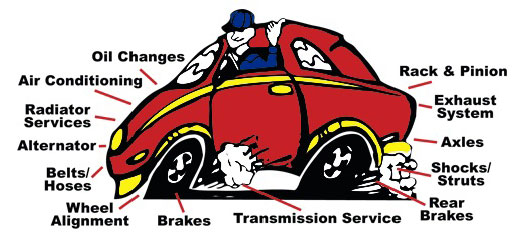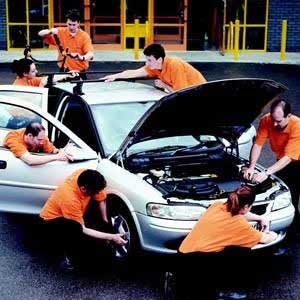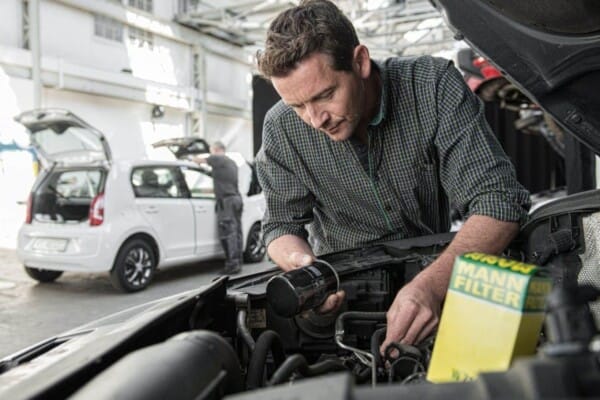In this increasingly hectic world, owning a vehicle is perhaps one of the most convenient and comfortable things. It is an easy mode of transportation and helps you get from point A to B in a short period of time. However, it is important for car owners to know that with owning a vehicle come a set of responsibilities as well. This is mainly because no matter how much you try to prevent faults and issues, cars eventually do start giving trouble in due time. This article provides you useful tips on how to maintain a car and when to perform regular maintenance checks.

Car Maintenance Tips
Follow these car maintenance tips to learn how to take good care of your car and increase the longevity of your vehicle.
Get to Know Your Vehicle – Read the Owner’s Manual
Of course, you might already know a lot about your vehicle, but to gain more valuable information it is imperative to take a comprehensive look at the owner’s manual. Store it in your glove box and if any issues or problems do occur, make sure to browse through it. The owner’s manual gives you useful tips on how to prevent problems and use various features of your vehicle. Additionally, it provides you a helpful car maintenance checklist (mentioned below) and even has a map of all your engine components, so you can learn how to check and top the essential fluids in the car.
Adherence to Servicing Schedules – Be Smart and Responsible
Ah, here it goes again, another fault! Why does your car happen to give so many problems? Well, have you been taking your car for regular servicing? Perhaps not, but bear in mind to always do so. This is mainly because skipping on quarterly/monthly schedules will only aggravate issues in your vehicle. Keep in mind that similar to any other appliance, your vehicle also requires regular tuning and servicing. Therefore, be smart and responsible and stick to your regular car maintenance schedule as advised by your automobile manufacturer or written in the owner’s manual.
Additionally, don’t forget to have your car serviced at a reliable repair shop. Find a knowledgeable and trusted mechanic to meet all your vehicle’s service and maintenance needs. You can consider asking your friends for recommendations or search online.
Battery Assessments – Look for Warning Signs
The battery is an important component of your vehicle without which it can almost be impossible to power and drive a vehicle. Any trouble with the battery can result in burned-out fuses and wires, thus leading to even more complicated problems and expensive repairs. Therefore, it is essential for car owners to assess their car battery at least once in every month. Look for warning signs, such as dangling wires and corrosion. Loose electrical connections should be attended on a priority basis. If you do find signs of corrosion, it’s time for you to visit your mechanic.
Regular Oil Changes = A Healthy Engine

Have you ever wondered how some car owners drive for hundreds and thousands of miles without facing trouble, while others pay thousands in repair bills? What’s the secret here? Regular oil changes! It is one of the main concept to keep in mind when learning how to maintain a car. All moving components inside your engine are lubricated by oil. Driving miles upon miles makes the engine oil extremely dirty, thus causing it to lose its lubricating qualities. This causes the engine to wear faster, resulting in more problems. Therefore, to avoid this from happening, keep in mind to regularly have the engine oil changed. This way, you can keep your engine lubricated and clean from the inside, leading to a healthier engine.
Change of Fluids – Extend the Life of Your Vehicle
The health of your engine cooling, power steering, anti-lock braking, and automatic transmission systems depends on the condition of the fluids. Similar to engine oil, other fluids in your vehicle begin to lose their lubricating qualities over time. Therefore, all vehicle fluids should be replaced at regular intervals. You can consider using a dipstick to check the fluid levels and fluid color before refilling. If the level is low or the color black, top up accordingly or change the fluids.
Additionally, if you use your vehicle for towing or other power-draining activities, consider installing an additional transmission fluid cooler. This way, you can prevent any overheating issues which can cause considerable damage to your vehicle.
Tire Assessment and Rotation = Smooth Drives
The tires are the foundation of your vehicle, without which it can be impossible to drive a vehicle. They balance your car and facilitate movements accordingly by working with your vehicle’s suspension system. However, this doesn’t mean they are ‘immortal’, as tires are subject to maximum wear and tear. Therefore, it is imperative for vehicle owners to check the tires regularly for warning signs. To maintain proper alignment, consider rotating your tires every three to four months. Additionally, to avoid any road-grip issues, make sure to check and maintain proper air pressure.
Replace Oil and Air Filters, Timing Belts, and Spark Plugs
Air filters and oil filters tend to get extremely dirty over time, thus causing loss of engine power and lower gas mileage. Spark plugs and timing belts too begin to deteriorate over time, thus causing numerous shifting and power issues. Therefore, when it comes to auto maintenance, replacing your vehicle’s spark plugs, timing belts, oil and air filters on time can save you a lot of costly repairs and can help maintain your vehicle’s engine efficiency.
Keep Your Vehicle Clean – The Cleaner, the Better
For optimum performance, it is essential to keep your vehicle clean both from the inside and out. Dust and air react with oxygen which causes rust on the exterior of your vehicle. Additionally, there are a lot of wires and electronics under the dash. Electronics plus water will always cause trouble. Therefore, keep in mind to wash your car on a regular basis to prevent rust and keep the interior clean to avoid any electronic issues and ensure your vehicle stays smell-free. Also, don’t forget to change your cabin filter after every 15,000 miles.
You can either perform these tasks yourself or have a professional do them for you. For maintenance schedule, check in your car brand vehicle guide for a checklist to learn how to maintain a car properly. Nevertheless, by following the car maintenance tips mentioned above, avoiding expensive repairs and maintaining your vehicle won’t be a problem.
Hope you gained some information from this article. Please share this article with others so they can benefit too!
Contents
- Car Maintenance Tips
- Get to Know Your Vehicle – Read the Owner’s Manual
- Adherence to Servicing Schedules – Be Smart and Responsible
- Battery Assessments – Look for Warning Signs
- Regular Oil Changes = A Healthy Engine
- Change of Fluids – Extend the Life of Your Vehicle
- Tire Assessment and Rotation = Smooth Drives
- Replace Oil and Air Filters, Timing Belts, and Spark Plugs
- Keep Your Vehicle Clean – The Cleaner, the Better







